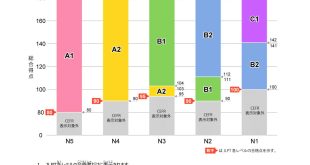Honorifics in Japanese : How to use honorifics
How to use honorifics in Japanese
1. How to divide honorifics in Japanese
1, For verbs
Method 1: Add お in front of ます 、 form verbs then remove ます and add になる(なります)
→ When we change to the false form, we remove になります, and add ください after the verb.
Example:
少々お待たせください。
Please wait a moment.
→ With these verbs, when switching to the commandment form, we just need to remove the なさいます above and add ください behind.
Example:
ご検討 (けんとう)ください
Please consider.
Method 2: Divide the verb in the passive form
In this way, we just need to divide the verb to be divided into the passive form to make it into honorific form.

2, For nouns
In nouns to talk about things or things that are subject to using honorifics, you just need to add お in front of pure Japanese nouns.
For Sino-Japanese nouns we add ご in front of the noun
3, For adjectives
Adjectives are rarely divided into honorifics, but if you have to change them, add お / ご in front of the adjectives.
2. Some honorifics are used in everyday communication
さん (san) : is the most common honorific used by all ages. さん has almost all names, used in both formal and colloquial situations.
ちゃん (chan) : is a light honorific that shows the level of affection. Japanese people use ちゃん a lot with children. ちゃん is also used when referring to a cute animal, lover, friend, ….
君【くん】(kun) : is honorific used to call a man or informally, it’s similar to ちゃん. This honorific is used when teachers communicate with female students.
様【さま】(sama) : is san’s version with a very high respect. Sama is mainly used by people of a higher status than themselves, customers, or people who communicate with respect.
先輩【せんぱい】(senpai) : The honorific refers to the seniors used in a school, the more experienced colleagues, the seniors.
先生【せんせい】(sensei) : is the honorific of teachers, politicians, doctors, lawyers, …
氏【し】(shi) : Honorifics are used in formal written form, used in speeches referring to an unknown person or object.
殿【との】(Tono) : The pronunciation is dono (どの), when accompanied by a name, meaning “lord” or “master marshal”. Used to refer to people of noble status.
上【うえ】(Ue) : means “superior”, to denote a high level of respect.
3. Japanese honorifics are often used in companies
Using honorifics in a company is extremely important, especially when you are communicating with your superiors, colleagues or partners. Below is a table of common words used in the company that are solemn and polite that we synthesize.
| Ordinary word | From polite | Means |
| 僕・わたし | わたくし | I |
| 今 | ただ今 | Now |
| 今度 | この度 | This time |
| このあいだ | 先日(せんじつ) | A few days ago |
| きのう | 昨日(さくじつ) | Yesterday |
| きょう | 本日(ほんじつ) | Today |
| あした | みょうにち | Tomorrow |
| さっき | さきほど | Before / A while ago |
| あとで | のちほど | The following |
| こっち | こちら | This side / our side |
| そっち | そちら | The other side / your side |
| あっち | あちら | That side |
| どっち | どちら | Which side |
| だら | どなた | Who |
| どこ | どちら | Where |
| どう | いかが | How |
| 本当に | 誠に | Really is |
| すごく | たいへん | Very |
| ちょっと | 少々 | A little |
| いくら | いかほど | How much |
1, Japanese honorifics are used when you need to ask a favor or start a conversation with a colleague / boss in the company.
– お忙しいところ申し訳ありません….: (I’m so sorry for bothering you while you’re busy ….)
– ただ今 お時間 よろしいでしょうか : (Question to confirm is currently possible to speak?)
– お話し中、大変失礼いたします : (Sorry for interrupting the story).
2, Japanese honorifics are used when consulting superiors
– 少々 お伺いしますが : ( I want to ask a little … )
– いかが いたしますか … : (Used to consult the other party about what I should do )
– いかが なさいますか … : ( Used to ask about the opponent’s wishes / opinions about how to do )
– お差し支えなかったら : ( If nothing is inconvenient …)
3, Japanese honorifics used when listening to the phone
– お世話に なって おります : ( Basic initial greeting on the phone)
– あいにく席を外しております : (The answer when the person the other person needs to meet is not present at that time to answer the phone)
 Learn Japanese Free Learn Japanese Free
Learn Japanese Free Learn Japanese Free







